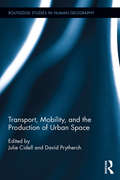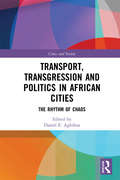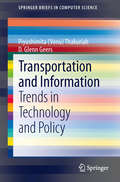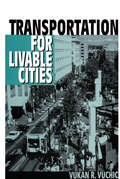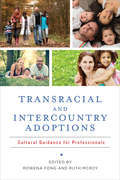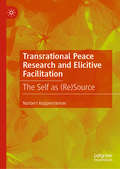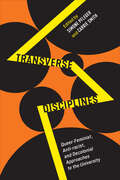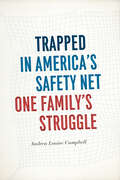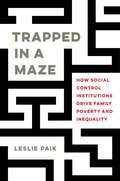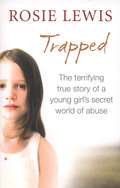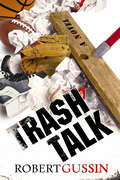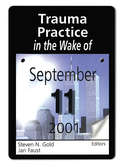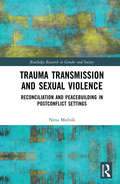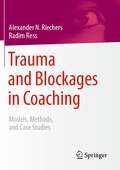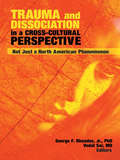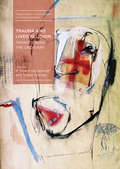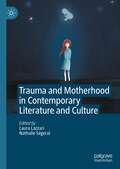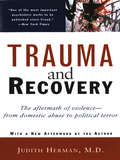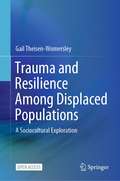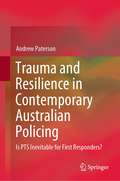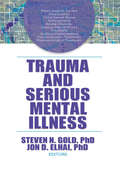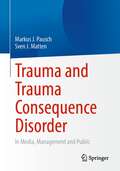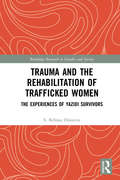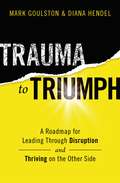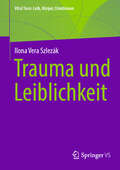- Table View
- List View
Transport, Mobility, and the Production of Urban Space (Routledge Studies in Human Geography)
by David Prytherch Julie CidellThe contemporary urban experience is defined by flow and structured by circulating people, objects, and energy. Geographers have long provided key insights into transportation systems. But today, concerns for social justice and sustainability motivate new, critical approaches to mobilities. Reimagining the city prompts an important question: How best to rethink urban geographies of transport and mobility? This original book explores connections – in theory and practice – between transport geographies and "new mobilities" in the production of urban space. It provides a broad introduction to intersecting perspectives of urban geography, transport geography, and mobilities studies on urban "places of flows." Diverse, international, and leading-edge contributions reinterpret everyday intersections as nodes, urban corridors as links, cities and regions as networks, and the discourses and imaginaries that frame the politics and experiences of mobility. The chapters illuminate nearly all aspects of urban transport, from street regulation and roadway planning, intended and "subversive" practices of car and truck drivers, planning and promotion of mass transit investments, and the restructuring of freight and logistics networks. Together these offer a unique and important contribution for social scientists, planners, and others interested in the politics of the city on the move.
Transport, Transgression and Politics in African Cities: The Rhythm of Chaos (Cities and Society)
by Daniel AgbiboaThis collection of field-based case-studies examines the role and contributions of Africa’s informal public transport (also referred to as paratransit) to the production of city forms and urban economies, as well as the voices, experiences, and survival tactics of its poor and stigmatised workforce. With attention to the question of what a micro-level analysis of the organisation and politics of informal public transport in urbanizing Africa might tell us about the precarious existence and agency of its informal workforce, it explores the political and socio-economic conditions of contemporary African cities, spanning from Nairobi and Dar es Salaam to Harare, Cape Town, Kinshasa and Lagos. Mapping, analysing and comparing the everyday experiences of informal transport operators across the continent, this book sheds light on the multiple challenges facing Africa’s informal transport workers today, as they negotiate the contours of city life, expand their horizons of possibility and make the most of their time. It thus offers directions for more effective policy response to urban public transport, which is changing fundamentally and rapidly in light of neoliberal urban planning strategies and ‘World Class’ city ambitions.
Transportation and Information
by D. Glenn Geers Piyushimita Vonu ThakuriahTransformations in wireless connectivity and location-aware technologies hold the promise of bringing a sea-change in the way transportation information is generated and used in the future. Sensors in the transportation system, when integrated with those in other sectors (for example, energy, utility and health) have the potential to foster novel new ways of improving livability and sustainability. The end-result of these developments has been somewhat contradictory. Although automation in the transportation environment has become increasingly widespread, the level of involvement and active participation by people, in terms of co-creation and contribution of information, has also increased. As a result, the following two major trends have been observed: (1) increases in Machine-to- Machine (M2M) communications; and (2) increases in the variety and volume of User-Generated Content. In this transportation paradigm, the pervasive use of Information and Communication Technologies will serve as the foundation for mobility intelligence towards an "ubiquitous information-centered mobility environment". However, many technical and operational questions, as well as social, management and legal challenges present themselves in the transformation to this vision. The book presents a non-technical review of research and initiatives and a discussion of such opportunities and challenges.
Transportation for Livable Cities
by Vukan VuchicThe twenty-first century finds civilization heavily based in cities that have grown into large metropolitan areas. Many of these focal points of human activity face problems of economic inefficiency, environmental deterioration, and an unsatisfactory quality of life—problems that go far in determining whether a city is "livable." A large share of these problems stems from the inefficiencies and other impacts of urban transportation systems.The era of projects aimed at maximizing vehicular travel is being replaced by the broader goal of achieving livable cities: economically efficient, socially sound, and environmentally friendly. This book explores the complex relationship between transportation and the character of cities and metropolitan regions. Vukan Vuchic applies his experience in urban transportation systems and policies to present a systematic review of transportation modes and their characteristics.Transportation for Livable Cities dispels the myths and emotional advocacies for or against freeways, rail transit, bicycles,and other modes of transportation. The author discusses the consequences of excessive automobile dependence and shows that the most livable cities worldwide have intermodal systems that balance highway and public transit modes while providing for pedestrians, bicyclists, and paratransit. Vuchic defines the policies necessary for achieving livable cities: the effective implementation of integrated intermodal transportation systems.
Transracial and Intercountry Adoptions: Cultural Guidance for Professionals
by Rowena Fong Ruth McRoyWith essays by well-known adoption practitioners and researchers who source empirical research and practical knowledge, this volume addresses key developmental, cultural, health, and behavioral issues in the transracial and international adoption process and provides recommendations for avoiding fraud and techniques for navigating domestic and foreign adoption laws. The text details the history, policy, and service requirements relating to white, African American, Asian American, Latino and Mexican American, and Native American children and adoptive families. It addresses specific problems faced by adoptive families with children and youth from China, Russia, Ethiopia, India, Korea, and Guatemala, and offers targeted guidance on ethnic identity formation, trauma, mental health treatment, and the challenges of gay or lesbian adoptions
Transrational Peace Research and Elicitive Facilitation: The Self as (Re)Source
by Norbert KoppensteinerThis book sheds new light on transrational approaches to peace research and highlights elicitive approaches to facilitation. Rather than encouraging researchers, teachers and practitioners to control and suppress their own positionality, the book argues that they can see themselves as a potential (re)source that can be creatively tapped for their work. Using dance as a central metaphor, it seeks to reposition research and facilitation as a truly experiential process where the entirety of human experiences and epistemologies can be brought into interplay, opening up new sources of knowledge. Providing a cutting-edge theoretical framework and based on his practical experience, the author demonstrates that facilitation and research are not just cognitive, but can also be(come) embodied, emotional, intuitive, relational and spiritual. By proposing a systematic, methodological framework for research and facilitation, the book offers practical guidance for peace practitioners, facilitators and researchers interested in working through all dimensions of their being and engaging with conflict transformation in a holistic way.
Transverse Disciplines: Queer-Feminist, Anti-racist, and Decolonial Approaches to the University
by Carrie Smith Simone PflegerFor at least a decade, university foreign language programs have been in decline throughout the English-speaking world. As programs close or are merged into large multi-language departments, disciplines such as German studies find themselves struggling to survive. Transverse Disciplines offers an overview of the current research on the humanities and the academy at large and proposes creative and courageous ideas for the university of the future. Using German studies as a case study, the book examines localized academic work in Australia, Canada, the United Kingdom, and the United States in order to model new ideas for invigorated thinking beyond disciplinary specificity, university communities, and entrenched academic practices. In essays that are theoretical, speculative, experimental, and deeply personal, contributors suggest that German studies might do better to stop trying to protect existing national and disciplinary arrangements. Instead, the discipline should embrace feminist, queer, anti-racist, and decolonial academic practices and commitments, including community-based work, research-creation, and scholar activism. Interrogating the position of researchers, teachers, and administrators inside and outside academia, Transverse Disciplines takes stock of the increasingly tenuous position of the humanities and stakes a claim for the importance of imagining new disciplinary futures within the often restrictive and harmful structures of the academy.
Trapped in America's Safety Net: One Family's Struggle (Chicago Studies in American Politics)
by Andrea Louise CampbellA “remarkable” look at the flaws of the social safety net through one family’s personal tragedy and the Catch-22 financial disaster that followed (Deborah A. Stone, author of Policy Paradox).When Andrea Louise Campbell’s sister-in-law, Marcella Wagner, was run off the freeway by a hit-and-run driver, she was seven-and-a-half months pregnant. She survived—and, miraculously, the baby was born healthy. But that’s where the good news ends. Marcella was left paralyzed from the chest down. This accident was much more than just a physical and emotional tragedy. Like so many Americans, neither Marcella nor her husband, Dave, who worked for a small business, had health insurance. On the day of the accident, she was on her way to class for the nursing program through which she hoped to secure one of the few remaining jobs in the area with the promise of employer-provided insurance. Instead, the accident plunged the young family into the tangled web of means-tested social assistance.As a social policy scholar, Campbell thought she knew a lot about means-tested assistance programs. What she quickly learned was that missing from most government manuals and scholarly analyses was an understanding of how these programs actually affect the lives of the people who depend on them. Using Marcella and Dave’s situation as a case in point, she reveals the programs’ shortcomings in this book. Because American safety net programs are designed for the poor, the couple first had to spend down their assets and drop their income to near-poverty level before qualifying for help. What’s more, to remain eligible, they’ll have to stay under these strictures for the rest of their lives, barred from doing many of the things middle-class families are encouraged to do: Save for retirement. Build an emergency fund. Take advantage of tax-free college savings. And, while Marcella and Dave’s story is tragic, the financial precariousness they endured even before the accident is all too common in America, where the prevalence of low-income work and unequal access to education have generated vast—and growing—economic inequality. The implementation of the ACA has cut the number of uninsured and underinsured and reduced some disparities in coverage, but continues to leave too many people open to tremendous risk.Behind the statistics and beyond the ideological battles are human beings whose lives are stunted by policies that purport to help them. In showing how and why this happens, Trapped in America’s Safety Net offers a way to change it.“An engaging narrative account of how social assistance programs shape real people’s lives. Campbell is authoritative and scholarly, yet warm and personal—a rare combination one sees in the likes of Oliver Sacks and Barbara Ehrenreich.” —Deborah A. Stone, author of Policy Paradox“Makes a compelling case for a stronger, more integrated, and ultimately more effective strategy for helping the millions of Americans who find themselves plummeting out of the insecure middle class.” —Jacob S. Hacker, New York Times–bestselling coauthor of Winner-Take-All Politics
Trapped in a Maze: How Social Control Institutions Drive Family Poverty and Inequality
by Leslie PaikTrapped in a Maze provides a window into families' lived experiences in poverty by looking at their complex interactions with institutions such as welfare, hospitals, courts, housing, and schools. Families are more intertwined with institutions than ever as they struggle to maintain their eligibility for services and face the possibility that involvement with one institution could trigger other types of institutional oversight. Many poor families find themselves trapped in a multi-institutional maze, stuck in between several systems with no clear path to resolution. Tracing the complex and often unpredictable journeys of families in this maze, this book reveals how the formal rationality by which these institutions ostensibly operate undercuts what they can actually achieve. And worse, it demonstrates how involvement with multiple institutions can perpetuate the conditions of poverty that these families are fighting to escape.
Trapped: The Terrifying True Story of a Young Girl's Secret World of Abuse
by Rosie LewisLocked for nine years in a secret world of severe abuse, as Phoebe opens up about her horrific past, her foster carer begins to suspect that Phoebe may not be suffering from autism at all.
Trash Talk: An Encyclopedia Of Garbage And Recycling Around The World
by Robert GussinFootball, baseball, basketball, hockey - pro athletes revolt! Too many fights, too many problems, lousy image! The commissioners are fed up and players are angry at mandated, educational seminar attendance! But that's what happened, and the commissioners aren't backing down. All pro athletes have to attend a course or seminar unrelated to sports every year. It looks like dark days for the athletes until one of them sees an ad for the upcoming S.E.S. Trash Talk symposium. How perfect is that? None of the athletes knew, or even cared, what S.E.S. was, but trash talk was their specialty. Word of the meeting spread among the athletes like wildfire. They could not apply fast enough. The annual Environmentalist Society Meeting, hosted by the Sarasota Environmentalist Society (S.E.S.), will be a surprise of a lifetime when the world of professional athletes collides with the world of professional environmentalists in an explosion of laughter. What happens next is worth the price of admission!
Trauma Practice in the Wake of September 11, 2001
by Steven N Gold Jan FaustTrauma practitioners and educators: are you ready to meet the challenges of the aftermath of terrorist attacks?Trauma Practice in the Wake of September 11, 2001 will show you how frontline trauma practitioners responded to the crisis of the terrorist attacks. In keeping with Haworth’s mission to provide practitioners and educators with timely information on the assessment and treatment of trauma, this essential book responds to the traumatic impact of the events of September 11th, 2001 and their implications for trauma practice. In Trauma Practice in the Wake of September 11, 2001, you’ll hear from the leaders of the Green Cross--one of the most prominent organizations providing psychological disaster response services--on their experience in the World Trade Center disaster, and read about the treatment of a client who was in the first WTC bombing in 1993. You'll also find revealing interviews with an Israeli psychologist and a Palestinian psychiatrist who focus on the impact of terrorism on their citizens. Trauma Practice in the Wake of September 11, 2001 is your key to state-of-the-art information on: the psychology of terrorism the traumatic impact of terrorism on those directly affected the traumatic impact of terrorism on the general population ways to help children, adolescents, and adults cope with the aftermath of the terrorist attacks on America how to deal with “compassion fatigue” (emotional depletion among helping professionals working with traumatized populations) traumatologists’response to rescue workers and victims in New York CityThe catastrophic events of September 11th have and will continue to raise special challenges for those of us in the field of trauma practice. By publishing this book and the ones to follow, we hope to assist trauma practitioners and educators in effectively meeting these continuing challenges.
Trauma Transmission and Sexual Violence: Reconciliation and Peacebuilding in Post Conflict Settings (Routledge Research in Gender and Society)
by Nena MočnikThis book grapples with the potential impacts of collective trauma in war-rape survivors’ families. Drawing on inter-ethnic and inter-generational participatory action research on reconciliation processes in post-conflict Bosnia-Herzegovina, the author examines the risk that female survivors of war-related sexual crimes, now-mothers, will breed hatred and further division in the post-conflict context. Showing how the historical trauma of sexual abuse among survivors affects the ideas, perceptions, behavioural patterns and understandings of the ethnic and religious ‘Other’ or perpetrator, the book also considers the influence of such trauma on other attitudes rarely addressed in peacebuilding programmes, such as notions of naturalised gender-based violence, cultural scripts of sexuality and support for dangerous or violent aspects of the patriarchal social order. It thus seeks to sketch proposals for a curriculum of peacebuilding that takes account of the legacy of war rape in survivors’ families and the impact of trauma transmission. As such, Trauma Transmission and Sexual Violence will appeal to scholars of politics, sociology and gender studies with interests in peace and reconciliation processes and war-related sexual violence.
Trauma and Blockages in Coaching: Models, Methods, and Case Studies
by Radim Ress Alexander N. RiechersBlockages to be solved with coaching are often the result of repressed traumatic experiences of a person or their ancestors. Pictorial models will guide the reader into the multi-layered landscape of the soul and its principles. Along the way, the book decodes traumas as the soul’s fundamental building blocks and follows them back to their origins: existential limit-experiences and their common denominator, the splitting of the soul. The consequences of this autonomous survival mechanism affect all areas of life, starting from the unconscious. Therefore, they are not accessible by conventional methods working with the conscious mind. The presented integrative approach provides means and ways that significantly expand the potential of coaching.
Trauma and Dissociation in a Cross-Cultural Perspective: Not Just a North American Phenomenon
by George F. Rhoades Vedat SarAn international look at the similarities and differences of long-lasting traumaTrauma and Dissociation in a Cross-Cultural Perspective examines the psychological, sociological, political, economic, and cultural aspects of trauma and its consequences on people around the world. Dispelling the myth that trauma-related dissociative disorders are a North American phenomenon, this unique book travels through more than a dozen countries to analyze the effects of long-lasting traumatization-both natural and man-made-on adults and children. Working from theoretical and clinical perspectives, the field&’s leading experts address trauma in situations that range from the psychological effects of "the Troubles" in Northern Ireland to the emergence of "Hikikomori," the phenomenon of social withdrawal in Japanese youth.Reactions to trauma can be both unique according to a person&’s culture and similar to the experiences of others around the world. Dissociation, intense grief, anger, and survivor&’s guilt are common responses as people split off mentally, physically, and emotionally from the source of the trauma, whether it&’s an act of nature (tsunami, earthquake, flood, etc.) or the trauma created by violence, physical, sexual, and emotional abuse, assault, confinement, kidnapping, and war. Trauma and Dissociation in a Cross-Cultural Perspective examines the efforts of clinicians and researchers in Europe, Asia, the Middle East, South America, Australia, and New Zealand to develop sociopsychological methods of providing counseling to people who are suffering physically, emotionally and spiritually, training for professionals counted on to dispense that counseling, and economic and political solutions that might help to limit the devastating effects of natural disasters. Trauma and Dissociation in a Cross-Cultural Perspective examines: the tensions between the National Health Service and the private sector in the United Kingdom how the Mandarin version of the Dissociative Experiences Scale (DES) is used in China Djinnai, a culture-bound syndrome and possession trance disorder found in Iran how colonialism has transmitted trauma to the Maori people of New Zealand transgenerational trauma in Turkey religious rituals and spirit possession in the Philippines "memory wars" in Israel traumatic syndromes among the French differences in dissociative experiences among Chinese and Japanese youth childhood trauma in Argentina and much moreTrauma and Dissociation in a Cross-Cultural Perspective is an enlightening professional resource for anyone working in psychology, sociology, psychiatry, and psychotherapy.
Trauma and Lived Religion: Transcending the Ordinary (Palgrave Studies in Lived Religion and Societal Challenges)
by R. Ruard Ganzevoort Srdjan SremacThis book focuses on the power of the ‘ordinary’, ‘everydayness’ and ‘embodiment’ as keys to exploring the intersection of trauma and the everyday reality of religion. It critically investigates traumatic experiences from a perspective of lived religion, and therefore, examines how trauma is articulated and lived in the foreground of people’s concrete, material actualities. Trauma and Lived Religion seeks to demonstrate the vital relevance between the concept of lived religion and the study of trauma, and the reciprocal relationship between the two. A central question in this volume therefore focuses on the key dimensions of body, language, memory, testimony, and ritual. It will be of interest to academics in the fields of sociology, psychology, and religious studies with a focus on lived religion and trauma studies, across various religions and cultural contexts.
Trauma and Motherhood in Contemporary Literature and Culture
by Laura Lazzari Nathalie SégeralTrauma and Motherhood in Contemporary Literature and Culture repositions motherhood studies through the lens of trauma theory by exploring new challenges surrounding conception, pregnancy, and postpartum experiences. Chapters investigate nine case studies of motherhood trauma and recovery in literature and culture from the last twenty years by exploring their emotional consequences through the lens of trauma, resilience, and “working through” theories. Contributions engage with a transnational corpus drawn from the five continents and span topics as rarely discussed as pregnancy denial, surrogacy, voluntary or involuntary childlessness, racism and motherhood, carceral mothering practices, surrogacy, IVF, artificial wombs, and mothering through war, genocide, and migration. Accompanied by an online creative supplement, this volume deals with silenced aspects of embodied motherhood while enhancing a better understanding of the cathartic effects of storytelling.
Trauma and Recovery
by Judith L. HermanWhen Trauma and Recovery was first published in 1992, it was hailed as a groundbreaking work. In the intervening years, Herman's volume has changed the way we think about and treat traumatic events and trauma victims. In a new afterword, Herman chronicles the incredible response the book has elicited and explains how the issues surrounding the topic have shifted within the clinical community and the culture at large.Trauma and Recovery brings a new level of understanding to a set of problems usually considered individually. Herman draws on her own cutting-edge research in domestic violence as well as on the vast literature of combat veterans and victims of political terror, to show the parallels between private terrors such as rape and public traumas such as terrorism. The book puts individual experience in a broader political frame, arguing that psychological trauma can be understood only in a social context. Meticulously documented and frequently using the victims' own words as well as those from classic literary works and prison diaries, Trauma and Recovery is a powerful work that will continue to profoundly impact our thinking.
Trauma and Resilience Among Displaced Populations: A Sociocultural Exploration
by Gail Theisen-WomersleyThis open access book provides an enriched understanding of historical, collective, cultural, and identity-related trauma, emphasising the social and political location of human subjects. It therefore presents a socio-ecological perspective on trauma, rather than viewing displaced individuals as traumatised “passive victims”. The vastness of the phenomenon of trauma among displaced populations has led it to become a critical and timely area of inquiry, and this book is an important addition to the literature. It gives an overview of theoretical frameworks related to trauma and migration—exploring factors of risk and resilience, prevalence rates of PTSD, and conceptualisations of trauma beyond psychiatric diagnoses; conceptualises experiences of trauma from a sociocultural perspective (including collective trauma, collective aspirations, and collective resilience); and provides applications for professionals working with displaced populations in complex institutional, legal, and humanitarian settings. It includes case studies based on the author’s own 10-year experience working in emergency contexts with displaced populations in 11 countries across the world. This book presents unique data collected by the author herself, including interviews with survivors of ISIS attacks, with an asylum seeker in Switzerland who set himself alight in protest against asylum procedures, and women from the Murle tribe affected by the conflict in South Sudan who experienced an episode of mass fainting spells. This is an important resource for academics and professionals working in the field of trauma studies and with traumatised groups and individuals.
Trauma and Resilience in Contemporary Australian Policing: Is PTS Inevitable for First Responders?
by Andrew PatersonThis book examines how fifty police officers in South Australia keep well and “bounce back” from duty-related traumatic experience in the absence of practical, accessible and timely organisational support. It investigates mechanisms police officers presently use to “normalise” their duty-related traumatic experiences to preserve the delicate professional balance between “coping” and “psychic numbing” and avoid the much publicised perils of a PTSD diagnosis, while being appropriately responsive to colleagues, victims and survivors in their daily work environment. By revealing how police officers manage trauma—outside of the expectations of mental health professionals, union representatives and police leadership—innovative approaches and recommendations are offered to support first responders in moving from assumptions of post-traumatic stress and through post-traumatic growth. The book considers recent advances in post-traumatic growth and resilience theory and reinterprets exposure in a positive context, as well as preventative experiences in Australia and internationally.
Trauma and Serious Mental Illness
by Jon D. Elhai Steven N. GoldAn exploration of the newfound connections between mental illness and trauma For decades, the idea that serious mental illnesses (SMIs) are almost exclusively biologically-based and must be treated pharmacologically has been commonplace in psychology literature. As a result, many mental health professionals have stopped listening to their clients, categorizing their symptoms as manifestations of neurologically-based disturbed thinking. Trauma and Serious Mental Illness is the groundbreaking series of works that challenge this standard view and provides a comprehensive introduction to the emerging perspective of SMIs as trauma-based. This unique collection illustrates how different psychotherapy approaches can lead to reduced symptomatology, decreased psychological distress, and improved functioning in individuals living with SMIs. Each extensively-referenced chapter in Trauma and Serious Mental Illness offers mental health workers a forward-looking theoretical inquiry, empirical study, or critical treatise providing compelling counter evidence to challenge the widespread belief that SMIs are not reactions to the extreme and extremely disturbing circumstances embodied by psychological trauma. In addition to the etiological application, this revealing text proposes ways to incorporate this cutting-edge approach toward treatment options as well. Contributors to Trauma and Serious Mental Illness suggest that: childhood trauma is related to psychotic disorders dissociation can be confounded with psychotic symptoms auditory hallucinations can be diagnostic of dissociation rather than psychosis psychosis is related to the quality of family of origin environment and to age of onset of childhood abuse bipolar and trauma-related disorders sometimes overlap individuals with SMIs suffer related trauma even in treatment facilities and much more!Trauma and Serious Mental Illness is an eye-opening resource for mental health professionals, psychologists, counselors, psychiatrists, social workers, trauma workers, and educators and students in these disciplines.
Trauma and Trauma Consequence Disorder: In Media, Management and Public
by Markus J. Pausch Sven J. MattenThis companion offers solutions for coping with anxiety as well as psychological trauma and post-traumatic stress disorder with a special focus on the target group of exposed persons who are active in management, the media or in the public in general and are thus exposed to particularly strong observation and evaluation by their environment. This work explains and supports how this can be dealt with constructively and perhaps even used as a competitive advantage as well as overcome fears and regain personal happiness.
Trauma and the Rehabilitation of Trafficked Women: The Experiences of Yazidi Survivors (Routledge Research in Gender and Society)
by S. Behnaz HosseiniBased on research in camps in Iraqi Kurdistan and among refugees in Germany, this book addresses the challenges, strategies and support systems that exist for the rehabilitation and reintegration of Yazidi women recovering from human trafficking. Through in-depth interviews, focus group discussions and case studies, it gives women trafficked by ISIS their own voice to express their experiences during captivity, whilst offering an overview of the forms of support and protection available and necessary for survivors. An examination of the experiences and needs of refugee women who have undergone traumatizing experiences, Trauma and the Rehabilitation of Trafficked Women will appeal to scholars and policy makers with interests in gender studies, feminist thought, sexual violence during war, human trafficking and trauma recovery.
Trauma to Triumph: A Roadmap for Leading Through Disruption (and Thriving on the Other Side)
by Mark Goulston Diana HendelHow to successfully navigate through crisis or trauma—and come out stronger on the other side. This leadership roadmap shows you the way.Organizational trauma takes many forms. It could be a pandemic that disrupts everything about the way people work. An economic meltdown. An act of violence. A failed merger. A layoff—or continual threats of one. Whatever the scenario, events like these can traumatize leaders and employees, sending everyone into survival mode. If the crisis is not &“named and claimed&” as trauma and managed effectively, it&’s sure to linger on in the form of chronic stress and anxiety. And left unspoken and unaddressed, blame, shame, and guilt often permeate the culture of the organization and erode its ability to thrive in the future. Here&’s the good news: when leaders navigate a traumatic event effectively, the organization doesn&’t just survive. It can be transformed and flourish in ways previously unimagined.In Trauma to Triumph: A Roadmap for Leading Through Disruption and Thriving on the Other Side, Mark Goulston, MD, and Diana Hendel present a visionary and tactical roadmap to help leaders create stability in the midst of chaos and uncertainty, move productively through a traumatic event, and come out even stronger and better on the other side.Here are just a few things you&’ll learn:How the survival mechanism manifests in employees and leaders in the midst of traumaThe predictable polarities, dilemmas, tensions and other patterns that emerge in traumatized organizations…and how to break these cyclesWhy lack of clarity in roles and poor communication are so dangerous in times of crisis (and how to avoid these common pitfalls)How leaders can shift to a mindset that helps them create feelings of trust, confidence, safety, respect, and inspiration in employees.Best practices for leading yourself and others through crisis; grieving losses, embracing healthy coping mechanisms, reframing, and moreHow to launch a rapid-response process that allows you to &“control the controllables&” and create a framework for making better decisions in the throes of crisisHigh-impact tactics to help your organization recover and heal in a way that doesn&’t just return to baseline, but transcends itFilled with tools and tactics, Trauma to Triumph is an organization-wide blueprint for navigating a future where we&’re likely to experience one stretch of whitewater after another. It gives leaders at every level the guidance they need to create confidence, courage, and enthusiasm in their team. It&’s not just about being prepared for future crises. It&’s also about leading in a new way in the times of stability in between—a way that creates a stronger, better company.
Trauma und Leiblichkeit (Vital Turn: Leib, Körper, Emotionen)
by Ilona Vera SzlezákDer Band stellt ein Traumaverständnis vor, das vom leiblichen Erleben der Betroffenen ausgeht und Trauma als soziales Geschehen versteht. Ausgehend von der „sozialen Unsagbarkeit“ traumatischer Erfahrungen und der vorsymbolischen Einschreibung von Trauma in das Leibgedächtnis, untersucht die Autorin das leiblich fundierte Erleben Traumatisierter in einer grundlegenden leibphänomenologischen Untersuchung. Darüber hinaus nimmt sie exemplarisch sozial diskriminierende Lebensbedingungen als Faktoren traumatischen Erlebens in den Blick. Der Band versteht sich als kritisch phänomenologischer Beitrag zu einem sozialsensitiven, erlebensbasierten Traumabegriff.
